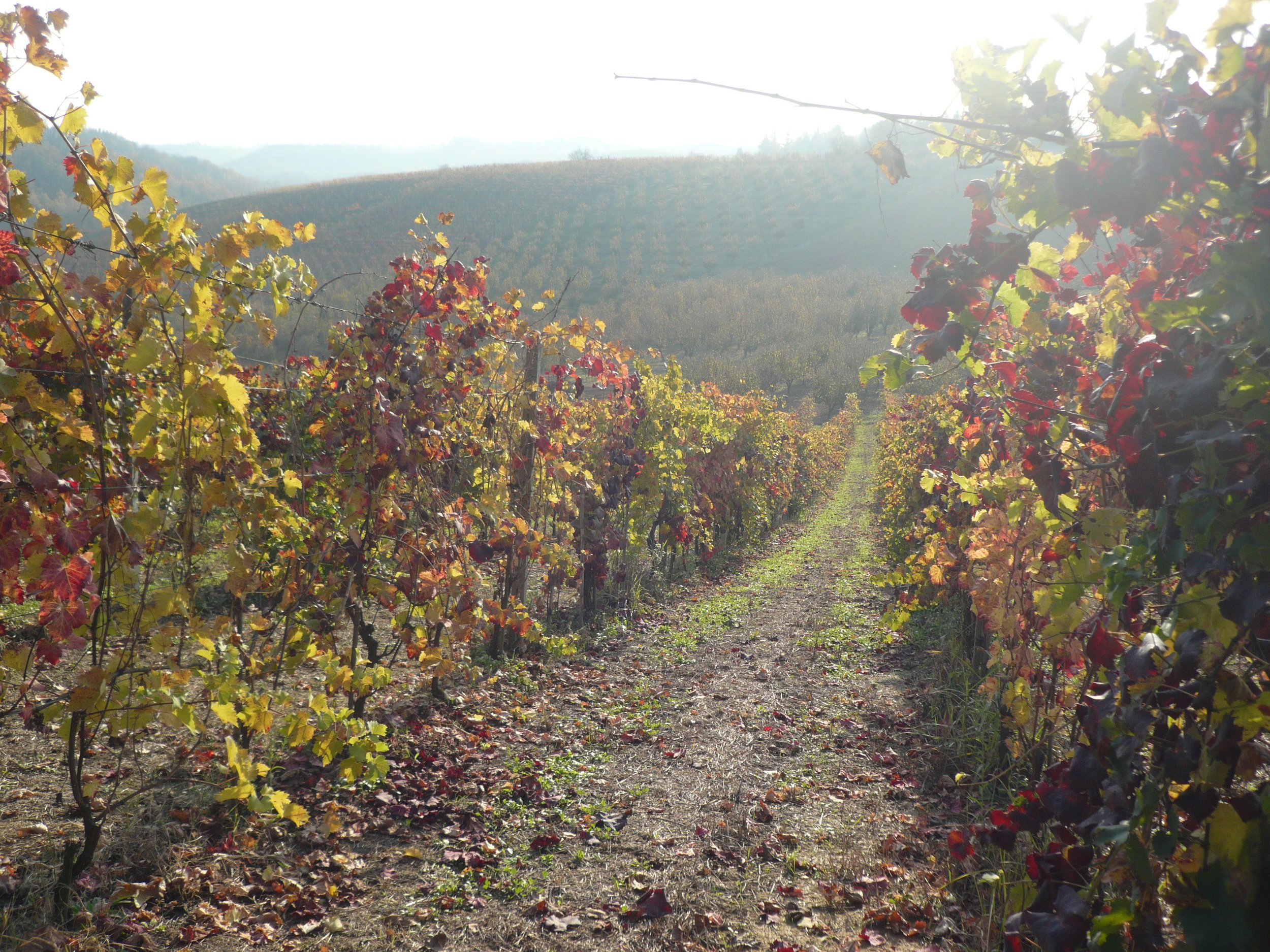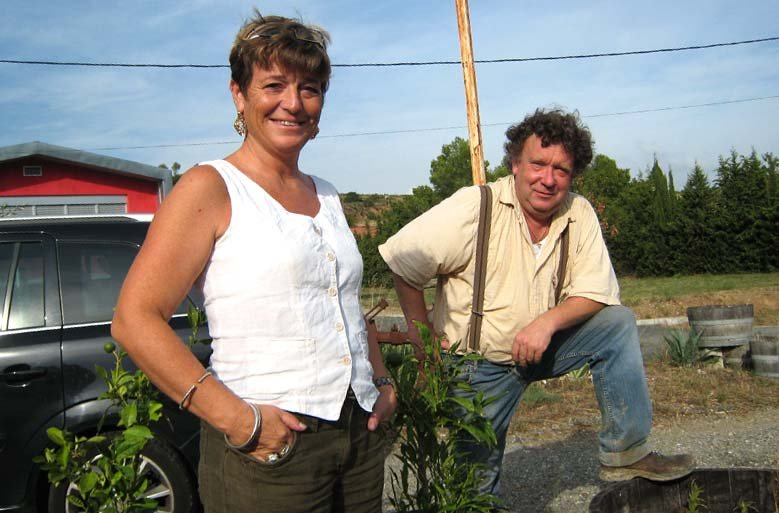
Château Coupe Roses
Minervois, Languedoc, France



Françoise Le Calvez is a tough-as-nails vigneronne who has spent the last thirty years transforming a humble family inheritance of vines into a thriving, cutting-edge Domaine that is turning out some of Languedoc's most satisfying wines. It remains a family affair, with oenologist son Matthias now responsible for production and daughter Sarah running the commercial side of the business--a passing of the torch of which Françoise is especially proud. Theirs is a place deep in the high-elevation wilds of Languedoc, where little more than vines, olives, and scrubby garrigue can survive. To call much of anything on the raw limestone terrain that they farm "soil"--the diggable stuff of gardens--is to betray the truth: it's often just rock. The fact that vines thrive here is a credit to these intrepid viticulturalists and the accumulated wisdom of more than a dozen generations of Francoise's family who have grown grapes on this Spartan plateau.
Situated on a high plateau near the villages of Minerve and La Caunette, the organic vineyards of Chateau Coupe-Roses are at the highest altitude in Minervois, between 750 and 1,350 feet (250 to 450m) above sea level, where cool nights and moderate temperatures allow grapes to ripen slowly, developing great acidity and flavor. This historic and rugged area is reflected in the wines, which are at once rustic and satisfying, with high toned garrigue aromas and dense fruit flavors.
Their vineyards, primarily planted to Grenache, Carignan, Syrah and smaller amounts of Cinsault, are in Le Causse and Le Petit Causse. A causse refers to an enormous outcropping of exposed rock— in this case, limestone—that supports little more than garrigue, olives and vines. The area is famous for being the home of the Cathars, a Christian religious organization whose views on sex and hierarchy amongst men and women proved anathema to the Catholic church. This stronghold held out for months before surrendering early in a twenty-year crusade launched by Pope Innocent III in 1209 that swept over the Languedoc and burned infidels wherever they could find them.
Today Coupe Roses is turning out the best--and most progressive--wines in its history. The vineyards are all certified organic and, increasingly, are treated biodynamically, with the sowing of cover crops as part of a naturally regenerative farming regime. They've built a bottling facility and tasting room that are entirely solar-powered. In the cellar, Matthias works with spontaneous ferments, and sulfur additions are just enough to avoid mousiness and stabilize the wines for travel. The wines speak of brilliant, garrigue-infused fruit with, most notably, a lip-smacking freshness that is all-too-rare in the wines of France's south. These are honest wines of character and charm that are excellent values.
Our Selections
Coupe Roses Minervois La Bastide 2021
Half Carignan and half Grenache with 5% Syrah, La Bastide Minervois is fermented in stainless steel with four weeks of skin contact. The wine is bottled with no oak. Vibrant red with notes of red cherries and a touch of bitter plum. The palate is dry with bright, fresh acidity, soft tannins, and a round texture. This is surprisingly complex with notes of minerals, graphite, herbs, and leather. Excellent value!
Review of 2020 Vintage: "Françoise le Calvez and her family have run Château Coupe-Roses since 2008. The domaine’s vineyards are in the highest elevations in Minervois, leading to cooler growing conditions, even cooler nights and harvests that start two weeks later than those of their colleagues located down on the plains of Minervois. Their vines are planted on clay and limestone heights, with many up on top of the plateau that oversees the village of Minerve, which gave the appellation its name. Consequently, they get more elegant, lower octane wines. Their 2020 Minervois “Bastide” bottling includes six percent syrah, with the balance nearly equal parts of grenache and carignan. The wine is fermented with indigenous yeasts and raised entirely in tank, with the 2020 coming in at 13.5 percent octane. It offers up a lovely, refined nose of black cherry, dark berry, garrigue, bonfire and a fine base of chalky soil tones. On the palate the wine is deep, ripe and full-bodied, with fine mineral undertow, a good core, moderate tannins and a long, complex and well-balanced finish. This is certainly approachable today, but will be even more interesting if given a few years in the cellar to let its tannins soften up a bit more. It packs impressive complexity and breed for an entry level bottling of Minervois and is a great value. [Emphasis added.] 90 pts”– John Gilman, View from the Cellar, July-August 2022

